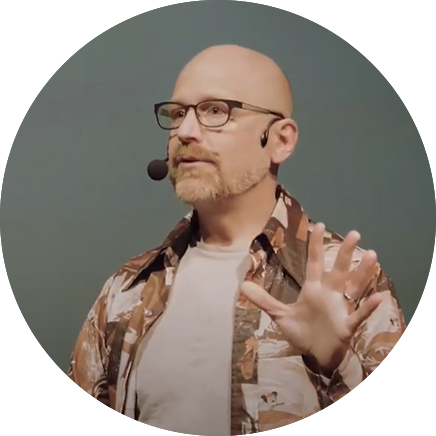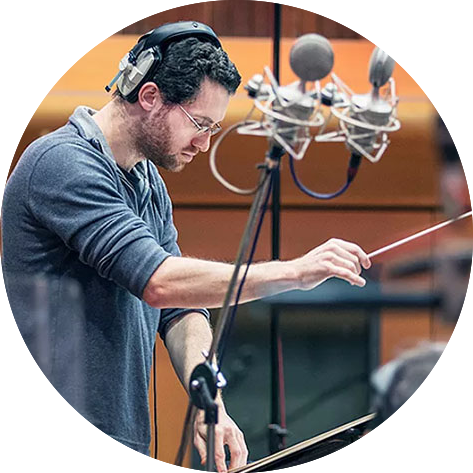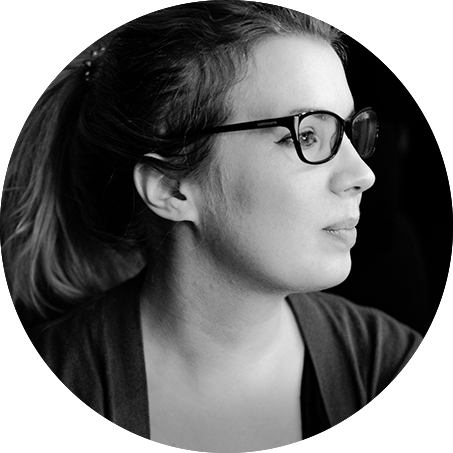During our recent Interactive Music Symposium, Guy Whitmore was joined by a handful of skilled professionals working in interactive music today - composer Elvira Björkman, composer Austin Wintory, composer & technical audio designer Chase Bethea, senior audio director Lydia Andrew, and composer Olivier Derivière. They came together to discuss music design, how they present themselves to clients, how they approach composing music for a game, as well as advice for today's up-and-coming composers and music designers. Below, you’ll find an overview of some key points from their discussion.
Do you pitch yourself to clients as a “music designer”, someone capable of deciding where, when, and how music should play in a game?
When Elvira started in 2011, she had multiple titles in her name, such as music composer, sound designer, and technical sound designer. That all changed when a producer encouraged her to keep it to one title, saying she found it more impressive. “And that has helped me with my own branding, and with my career going forward,” Elvira says. “And then it comes as an extra surprise when I talk about the other things I can do for them.”
“It's funny because I don't think I've ever once been hired on the basis of a pitch about interactivity,” Austin admits. “In fact, I don't remember that even once coming up in an initial meeting.” Although he thinks it would be fascinating if developers and publishers hired on the basis of a composer’s predilection for interactive music, in his experience “it's almost always about the music itself.”
On the other hand, Guy includes separate line items for music design and music integration, and he finds clients are buying into that. He adds that oftentimes, it’s important to educate developers who might not be aware of the potential of having music design-related conversations with composition teams. “And I see that as part of our role as either audio directors and composers. We're not there to simply provide the beautiful music, but to also help explain how it can actually move the narrative along in very real ways,” he says.
How do you approach music for a game?
Olivier approaches each game with a blank slate, saying “I don't know how to do it. I never know.” He adds that he doesn’t like to work with temp tracks or listen to any references. “If you want this type of music, hire the guy or lady who made it,” he says. “I'm in service of the game and the game vision. I'm not here to impose anything, but I'm here to enhance everything. And that's what I usually do.”
Similarly, when working on the Assassin’s Creed franchise, apart from reusing some technical or integration approaches, Lydia and her team at Ubisoft like to start fresh with each game. “You are working on the same brand, but you're working with new characters, in a new location, in a new historical setting, a new country, in a new language,” she says. “So you do reset [...] and that's one of the things I love. That's one of the things that's so exciting, the journey between A to Z.”
Austin likes to approach music for each game with the mindset of doing only exactly what’s needed. He recalls coming out of Journey and going straight into The Banner Saga and realizing, “it actually doesn't need to be that complicated this time. I'll be adding things that are not in service of the game or the player’s ultimate experience.” Austin says, “I do think it's an easy trap to fall into, especially when you love user design and interactive systems. It’s exciting. But then do you actually have to do all those things? In most cases, maybe not.”
Before Chase ever touched an instrument, he knew what it was to be a player first. And so, whenever he starts a new project, he finds that he has to “tap into that childhood. And that is what I bring to the table [...] I remember what it's like to be the player. Before I’m a music composer. Before I’m a music designer.”
Whenever Elvira can get hold of a build, she likes to play the game first without any music, “writing down where I would like the music to be, and then start the music pieces after I have sought out the technical approach first.”
Advice to up-and-coming game composers and music designers
Olivier says, “Writing beautiful music is one thing, but this is your job as a composer.” As a composer specifically for games, he encourages you to dive into music design and integration so that you can become great at discussing technical and game-specific details with developers and publishers. “It’s about language,” Oliver says. “It’s not just about the technical, but the technicality will give you that language.”
Lydia’s advice is to play games. “Play it as a player,” she starts. “And then play it again and think about it and interrogate it and break it down and dig into it. See if the composer or the sound team did a talk." She also encourages people to educate themselves on everything that goes into creating a soundtrack for a game, "so you can have a conversation with someone and start to feel more educated, more confident, more comfortable. But you don't have to do everything. You don't have to code to be a composer in games. If you can do that, that's great, but you don't have to. So don't let it stop you. Don't be scared of the fact that other people can do that stuff, because you don't have to be good at absolutely everything. Just educate yourself about what those things are.”
Chase encourages folks to participate in game jams. He says, “You can join today, you can do as many as you want, and you learn at a very great pace.” And through them, you’ll be able to understand what game development is in its entirety and if it’s for you. On the topic of game jams, Guy adds, “You come out with demos, something you can actually show to potential clients. That always impresses me.”
You can watch the full discussion here:







댓글